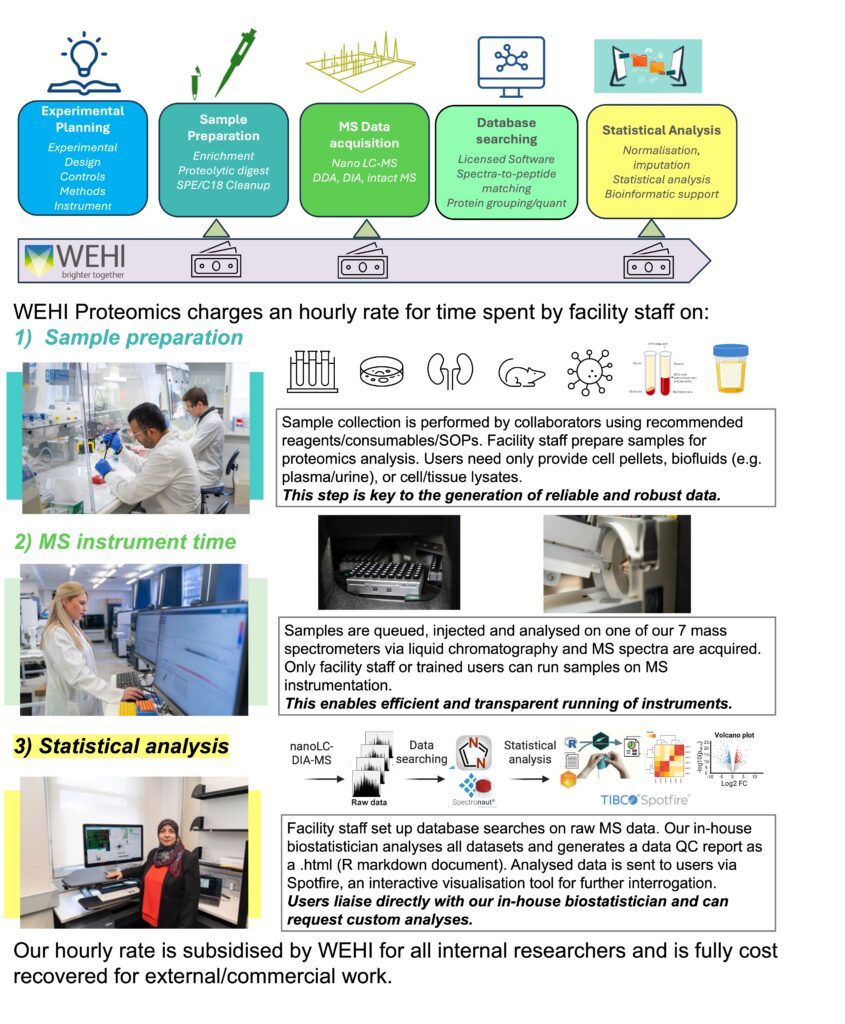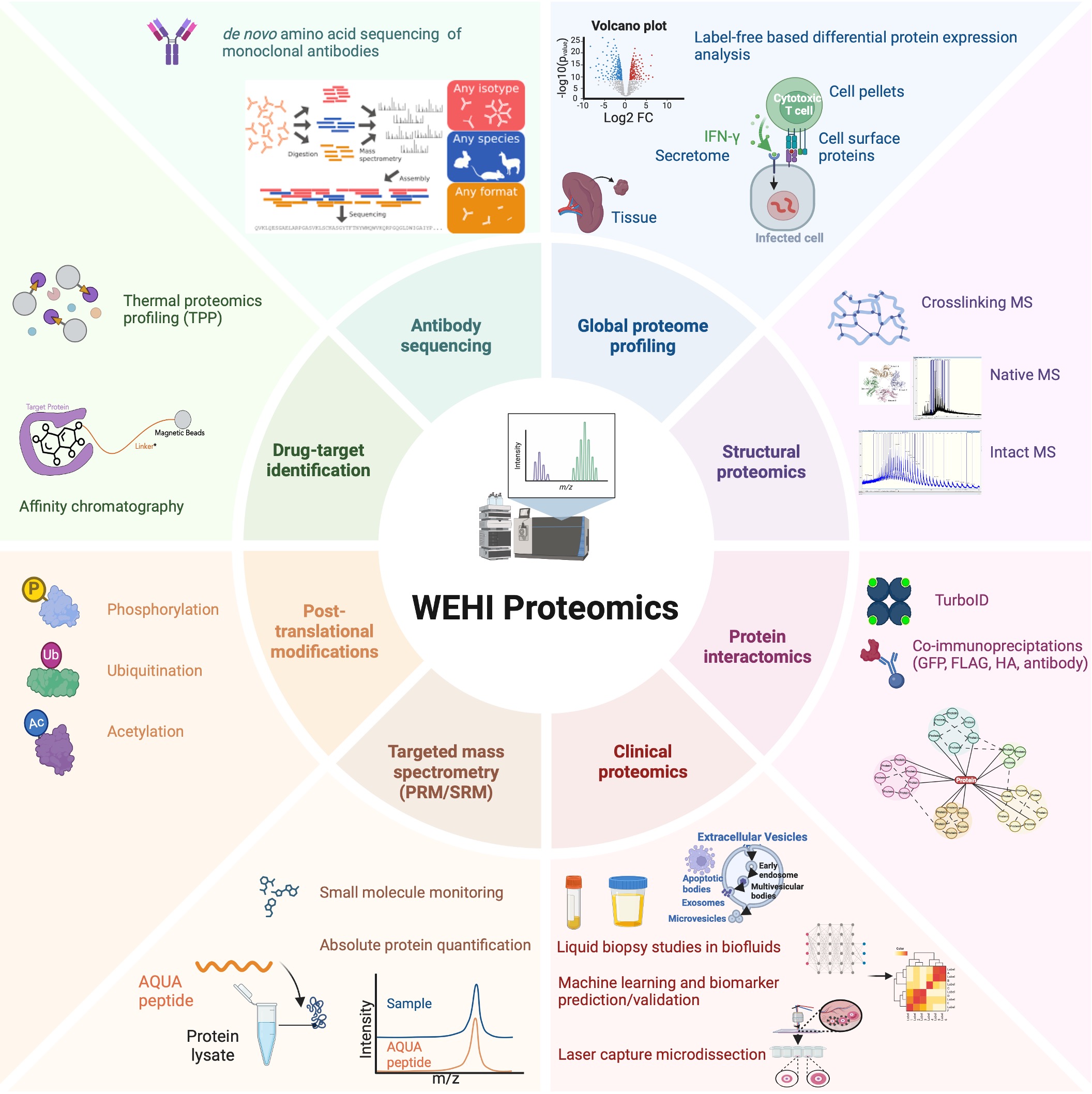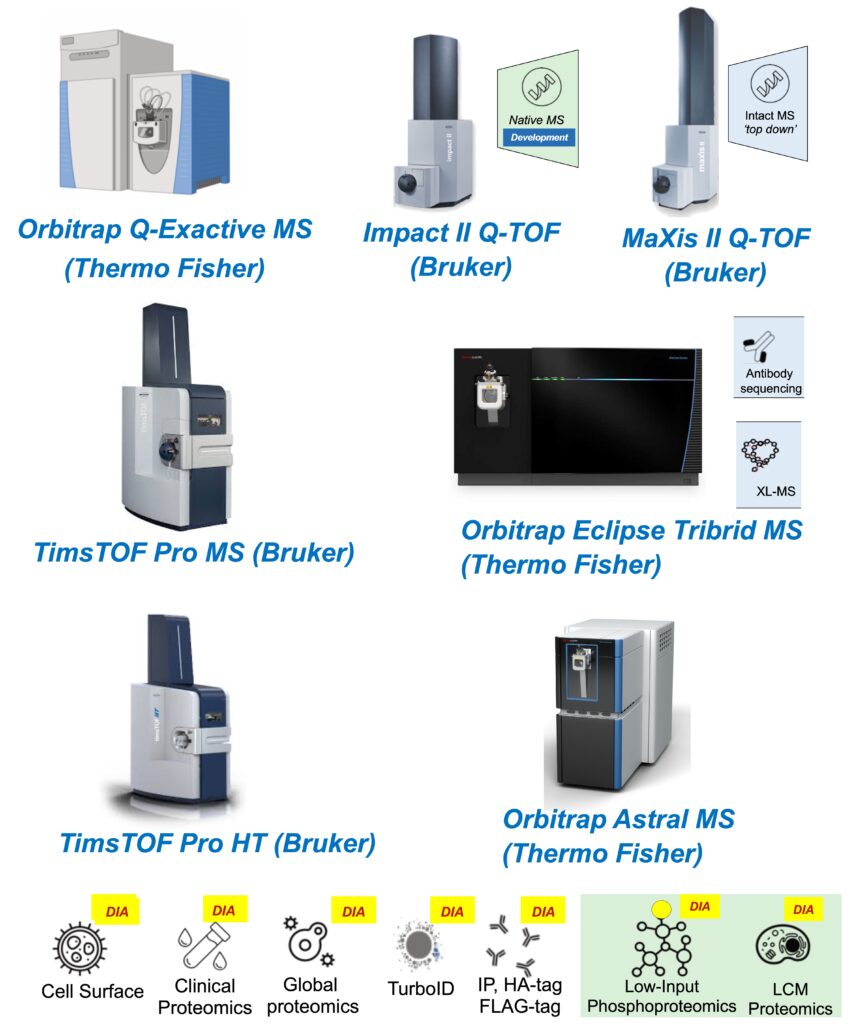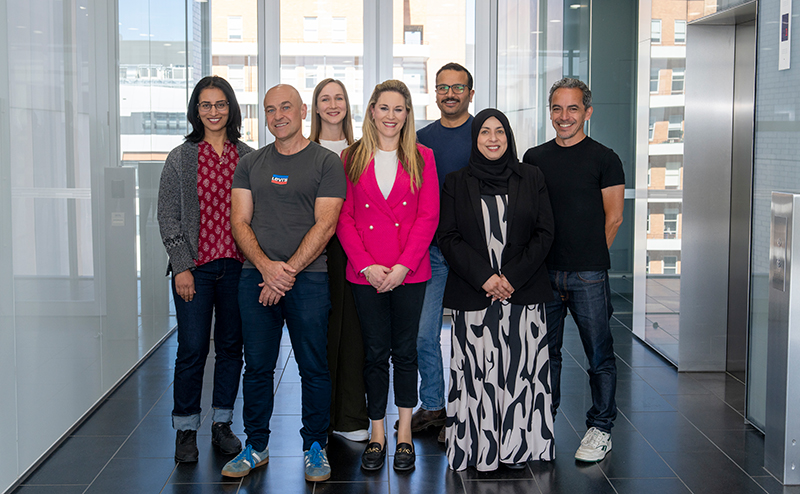Mass spectrometry (MS) and proteomics require specialist training and instrumentation which is beyond the scope and capacity of most research laboratories. The facility makes this expertise and equipment accessible, offering a ‘complete’ approach to support researchers through all stages of planning, experimentation, and data analysis for proteomics.
Working in a collaborative model that offers customised services, the facility team meets with researchers to discuss aims and expectations, learn about the origin and type of samples they want to submit, and advise on workflows, including appropriate experimental controls.
Our team also trains users in sample processing or MS instrumentation if upskilling is required for their research.














